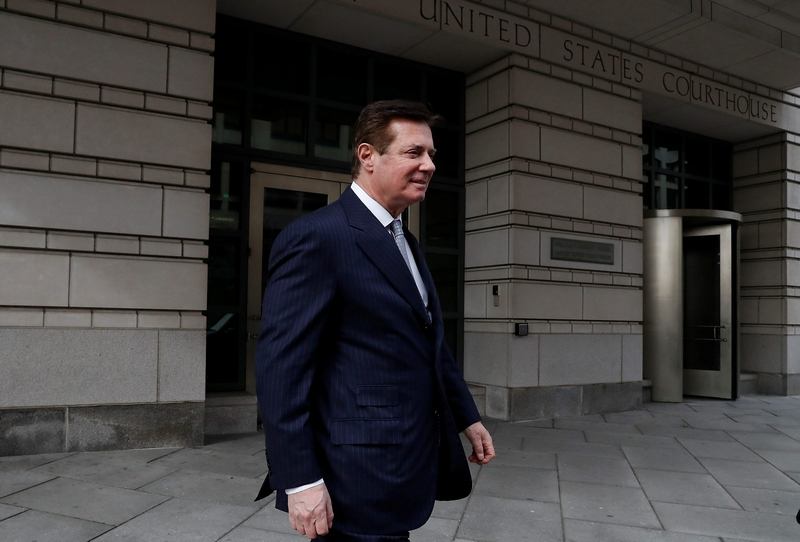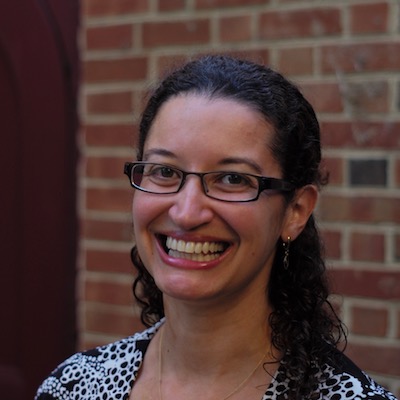At Paul Manafort’s Virginia Trial, References to Russia Are Banned—Yet Ever-Present
The trial of Paul Manafort, the first criminal trial to stem from the special counsel’s investigation into Russian interference in the 2016 election, opened Tuesday in the Eastern District of Virginia. Lawyers for both sides avoided mention of Robert Mueller or Donald Trump, yet the specter of L’Affaire Russe hung over the proceedings even before the president tweeted about his former campaign chairman on Wednesday:

Published by The Lawfare Institute
in Cooperation With

The trial of Paul Manafort, the first criminal trial to stem from the special counsel’s investigation into Russian interference in the 2016 election, opened Tuesday in the Eastern District of Virginia. Lawyers for both sides avoided mention of Robert Mueller or Donald Trump, yet the specter of L’Affaire Russe hung over the proceedings even before the president tweeted about his former campaign chairman on Wednesday:
Judge T.S. Ellis III has banned references to Russia or “collusion” in this trial, which focuses mostly on financial crimes. The government alleges that Manafort committed tax fraud, bank fraud and conspiracy to commit bank fraud over several years, funneling about $30 million through offshore accounts. The separate federal charges filed against Manafort in U.S. District Court for the District of Columbia have the more explicit connections to politics: conspiracy against the United States, unregistered agent of a foreign principle, false and misleading statements under the Foreign Agents Registration Act (FARA), obstruction of justice, conspiracy to obstruct justice, false statements and money laundering.
Yet the connection to politics in this trial was obvious in the opening statements.
Assistant U.S. Attorney Uzo Asonye framed the government’s case, which is built on complex financial records spanning several years, as a simple concept for the jury: “A man in this courtroom believed the law did not apply to him.” He cast Manafort as a “shrewd” liar who hid revenue from his own bookkeeper and funneled millions of dollars through a maze of overseas bank accounts and shell companies, as well as disguising income as bogus loans, all to avoid reporting it to the IRS. Calling the revenue from Manafort’s political work in Ukraine his “golden goose,” Asonye argued that Manafort submitted fake documents “or got others to do it for him” and said the “evidence will show that they all understood they were breaking the law.”
In a filing Monday, prosecutors said the government expects to prove that Manafort earned more than $60 million from lobbying and political consulting work in Ukraine and failed to report “a significant percentage of it” on his taxes. Manafort’s defense team is seeking to keep out some evidence that details his work in Ukraine for former president Viktor Yanukovych and his Party of Regions, arguing that it has nothing to do with this trial’s charges of tax and bank fraud. Prosecutors say that they won’t discuss Yanukovych’s flight to Russia in 2014 or “any other controversial aspect of his presidency” but that some exhibits are necessary to prove how much money Manafort earned and did not report, that he knew he was paid through unreported foreign bank accounts, and that he eventually committed bank fraud to make up for reduced income from Ukraine.
In its opening statement, the defense also sought to paint a simple portrait. “This case is about taxes and trust,” attorney Tom Zehnle began. He argued that Manafort was uninvolved in his business’s day-to-day financial dealings and that those matters and even Manafort’s personal finances were handled by Rick Gates, Manafort’s longtime deputy. Zehnle referenced Manafort’s political work in Ukraine, saying it sought to push that country closer to Western democracies—implicitly suggesting to the jury that a democratically minded businessman couldn’t be a stooge of the Russian government. Manafort was paid through numerous bank accounts, Zehnle said, because that’s how his clients in Ukraine tracked payments for separate campaigns and he didn’t put his name on the accounts because that’s what the oligarchs “wanted.” Financial backers of the Party of Regions did not want others in Ukraine to know their dealings, Zehnle said.
The defense argues that the government has made a star witness out of a liar, suggesting that Gates embezzled from Manafort (“Little did Paul know that Rick Gates was lining his own pockets”) and saying that Gates made false statements to the government even as he worked out a plea agreement. Credibility questions aside, Gates inherently brings political connotations to the case: Gates continued to work for the Trump campaign after Manafort left in 2016 and was deputy chairman of Trump’s inaugural committee. Initially, Gates was named alongside Manafort in a 32-count superseding indictment in February. Gates quickly reached a deal with the government and is cooperating with the special counsel’s investigation. Other charges against Gates were dismissed after he pleaded guilty to lying to the FBI and conspiracy to defraud the United States. The financial allegations against Manafort were then refiled.
Even if references to the Russia investigation were forbidden Tuesday—although they came up once the jury was dismissed—they were the backdrop. The president’s tweet storm Wednesday defending Manafort—“These old charges have nothing to do with Collusion - a Hoax!”—and urging an end to the Mueller investigation only made the connection to L’Affaire Russe more explicit. Whatever the outcome of this trial, it is likely to affect perceptions: A guilty verdict presumably would make it harder for the president to credibly call the Russia investigation a “witch hunt,” while Trump supporters would seize on an acquittal to denounce the investigation.



.jpg?sfvrsn=676ddf0d_7)

